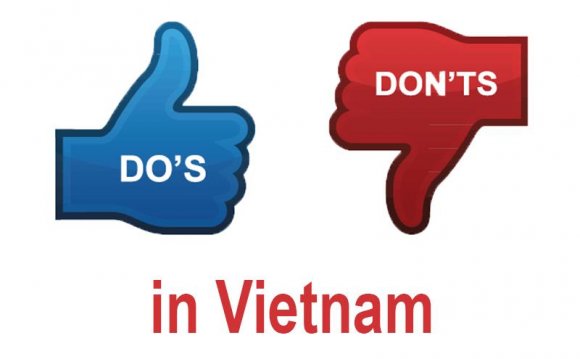
The Vietnamese individuals price modesty and humility plus harmonious relations with others. Seeking to prevent dispute in connections, they often times prefer to speak about sensitive and painful topics indirectly. Traditionally, Vietnamese men and women list their family name first, then their particular middle name, using their very first (provided) name listed as last. Relatives use various provided names (very first brands are not passed down), therefore the title reflects some definition. Some names can be used for either gender.
Vietnamese culture really concerns with standing (acquired as we grow older and knowledge). The Vietnamese sometimes may actually answer "yes" (dạ) to all the questions. However, the way in which of saying yes is fairly courteous "Yes, i'm listening, " "Yes, i'm perplexed, " or "Yes, I do n't need to offend." "Thua" (meaning please) is added in front of the first name to demonstrate respect.
 To address people, formally, you always see Vietnamese folks use Mr. or Ms. or a title as well as the first-name. Traditionally, Vietnamese greet each other by joining hands and bowing somewhat. However, in big metropolitan areas, some males have actually followed the Western training of trembling hands. In public areas, males usually hold hands as a manifestation of relationship. Hugging, however, is set aside for loved ones. You rarely see a Vietnamese lady trembling fingers with other or with a man.
To address people, formally, you always see Vietnamese folks use Mr. or Ms. or a title as well as the first-name. Traditionally, Vietnamese greet each other by joining hands and bowing somewhat. However, in big metropolitan areas, some males have actually followed the Western training of trembling hands. In public areas, males usually hold hands as a manifestation of relationship. Hugging, however, is set aside for loved ones. You rarely see a Vietnamese lady trembling fingers with other or with a man.
Displays of respect
The respect may be the corner-stone of interpersonal relationships in Vietnamese community. Generally, respect is conveyed by the use of unique terms of target and particular stylistic products. Yet, furthermore expressed by nonverbal behavior. For example, a Vietnamese student whom sits quietly and listens attentively to your instructor desires to show value to his teacher. This behavior has actually frequently already been misinterpreted because of the American teacher as passivity and non-responsiveness.
It is also off value the Vietnamese student prevents eye contact together with instructor when talking or becoming spoken to. By American standards, someone acting in this manner would appear suspicious, unreliable, or mischievous. In Vietnamese tradition, however, considering a person's eyes results in challenging or an expression of deep enthusiasm.
The smile, which can be occasionally enigmatic into the United states observer, is yet another nonverbal icon conveying the experience of respect in Vietnamese culture. It should be noted that for certain emotions, Vietnamese culture likes non-verbal interaction while American culture is much more inclined to make use of spoken phrase. It is made use of as an expression of apology for a minor offense, for example, a late arriving at course or a manifestation of shame whenever committing an innocent blunder. When it comes to Vietnamese, the smile is a suitable reaction in most situations whenever verbal expression is not required or perhaps not appropriate. It is used as an alternative for "i am sorry", "Thank you" or "Hi!" as opposed to a ready yes to avoid appearing over-enthusiastic.
Beside, instructors never ever give thanks their particular students for a tiny solution, including shutting the screen or passing the books around. A grin does in this situation. The person who offers a compliment never expects a "thank you" in exchange. In Vietnamese tradition, a verbal expression of thanks a lot in cases like this refers to insufficient modesty from the individual who receives the go with. In this instance, a grin or a blush within the face is the proper reaction to a compliment. If a verbal reaction is essential, he or she would reject the compliment by stating that she or he cannot deserve it. Because of the difference between how you can express the feelings of understanding or apology inside two countries, misconceptions have actually happened, definitely.
Story telling. Humorously, the Vietnamese are superb story tellers and orators. When Vietnamese meet, they mention their next-door neighbors and pals as a kind of enjoyment. Many subjects viewed as personal or private within Western nation is openly discussed in Vietnam. Like, normal questions when anyone first satisfied are:
— How old are you currently? (these records is important to choose the proper pronouns in Vietnamese)
— have you been married?
— Have you got children? Why don't you? Can there be something amiss together with your wife?
— the amount of money do you really earn?
Folks are additionally extremely interested in in which you were, whom you have experienced and that which you have inked. In this way, information flows rapidly. As result, the precision regarding the info is not at all times important to the storyline teller.
Because Vietnamese community values stability in personal relations, relationships are generally exceedingly personal. The Vietnamese tend to be profoundly romantic, not only in a sexual sense additionally in their experience towards their prolonged family, their particular ancestors, their property village and nation.
Visitors are thinking about this help guide to regulate their motions and polite behavior when speaking with Vietnamese individuals. Here are some is a summary of nonverbal habits and their particular definitions in Vietnamese culture.
|
Nonverbal Expression |
Meaning in Vietnamese Community |
|
Nodding |
Greeting; affirmative reply; contract |
|
Trembling an individual's mind |
Bad answer; disagreement |
|
Bowing |
Greeting; great value |
|
Touching young child's mind |
Not valued, not unpleasant |
|
Preventing eye contact |
Showing value to individuals senior in age or standing or associated with the opposite sex |
|
Winking |
Perhaps not appropriate, especially when inclined to folks of the opposite intercourse |
|
Frowning |
Disappointment, anger, or be concerned |
|
Pouting |
Disdain |
YOU MIGHT ALSO LIKE












